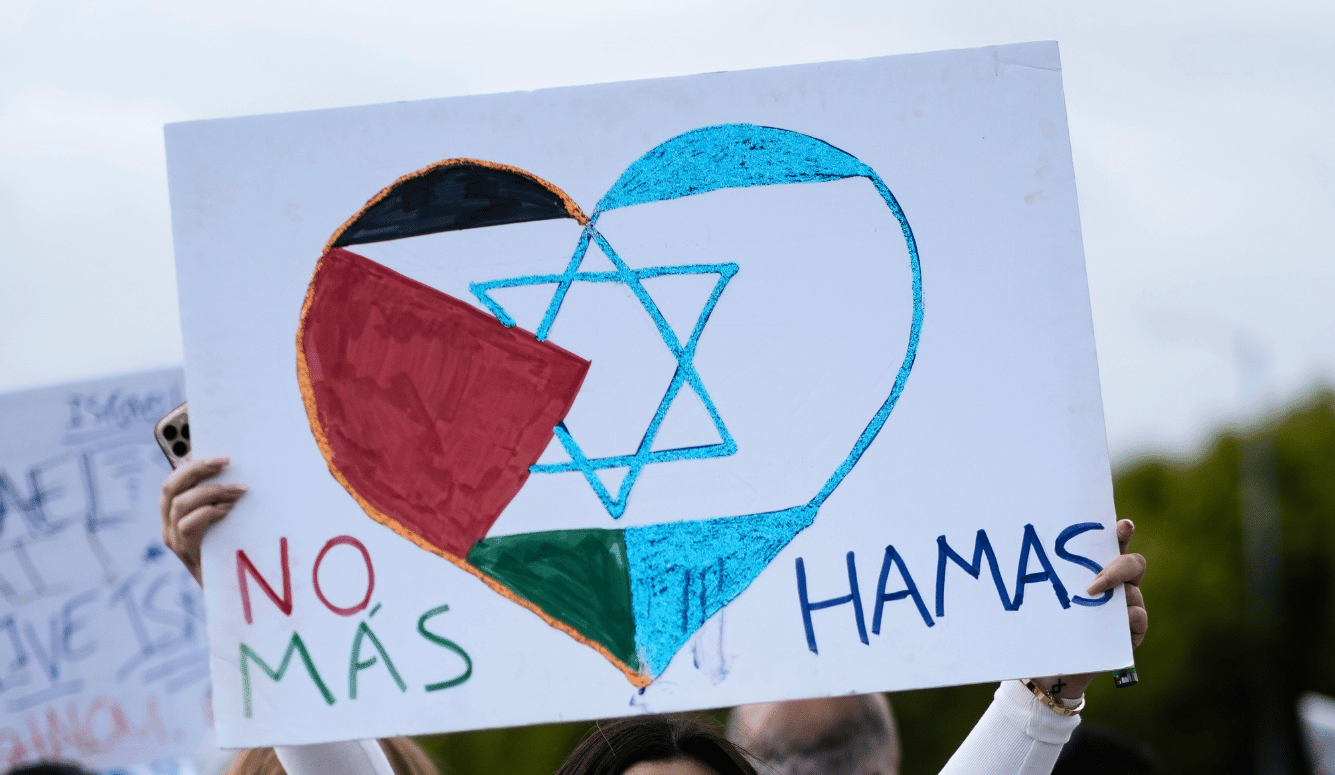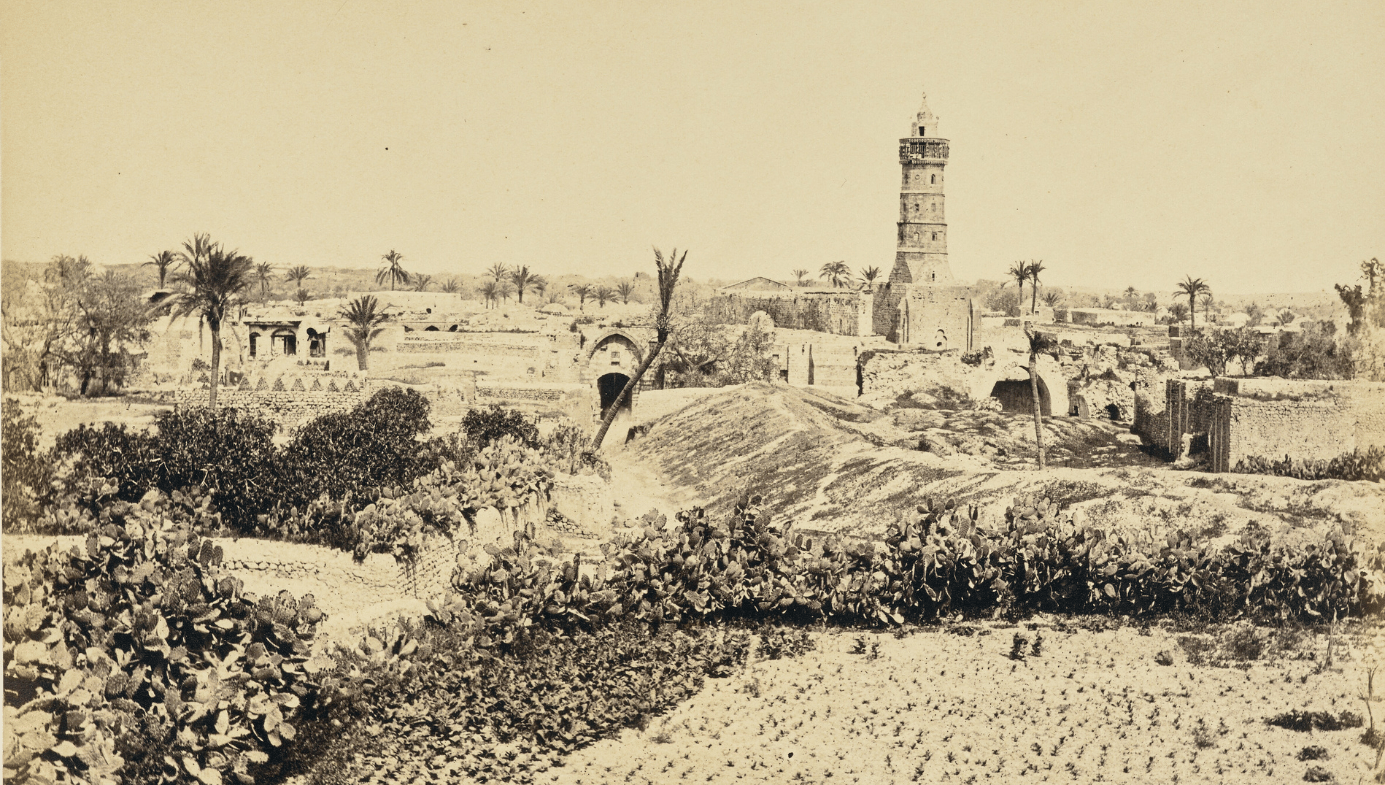
A sad memory from the evening of 6 October 2023 is stuck in the back of my mind, and often trickles back into the forefront of my thoughts when I think about the ongoing spasms of war between Israel and Hamas and the resulting death and destruction in Gaza.
I was scrolling through my Facebook feed when I saw some photos uploaded by Jewish friends celebrating Sukkot, a holiday commemorating the biblical story of the Israelites’ 40-year journey through the desert after their exodus from enslavement in Egypt, led by Moses. The pictures showed the temporary outdoor structure called a sukkah that a friend had erected in his back garden. These structures, with roofs created from natural materials like branches or leaves, are built on Sukkot to represent the fragile dwellings the Israelites lived in during their journey. During the week-long festival, families and friends gather in these sukkahs to eat, socialise, and reflect on their religion, and their lives.
At the time, I was just a Palestinian-British student who had gained a few Jewish friends by participating in small-scale peace groups. I wanted to learn about the other side’s narratives and history because I believed then—just as I believe now—that neither Palestinians nor Israelis are going anywhere, so we have to live in peace together, and that the process of peacemaking starts with being able to listen to each other and understand each other’s lives and troubles.
I am just one person, but I wanted to do everything that I could to help build this process of mutual understanding and intercommunal cooperation. As I learned more about the long and interwoven history of the conflict between Zionism and Palestinian-Arab-Islamic nationalism, I realised that it is important to take responsibility for trying to improve things and attempting to coexist peaceably, instead of casting all the blame on the other side.
Peace is just the first step, of course. I dreamed of a Palestine that would be not only at peace, but a glimmering jewel of prosperity and economic development, like a Singapore on the Mediterranean. Palestine sits on a land bridge between Europe, Asia, and Africa, which makes it a prime location for infrastructure and prosperity. Its population, in spite of the ongoing conflict, is highly educated. Being located next door to the Israeli high-tech hub should be an economic blessing in terms of trade, education, and development—not a curse.

That was how I felt on 6 October. Then the next day, Hamas carried out an anti-Jewish pogrom in which over 1,200 Israelis were killed, some were raped, and over 200 were kidnapped and taken to Gaza, where at least 100 remain in captivity to this day. My peaceful dream seemed to have been shattered into a trillion pieces on the floor like a glass ornament dropped from a skyscraper. Peace, it seemed, might now be delayed for decades or even generations. Hamas deliberately chose terror, throwing everybody—both Palestinian and Israeli—into chaos.
Yes, Palestinians have suffered decades of disenfranchisement, displacement, blockade, and military occupation, and these things have caused a heavy collective trauma—but this attack immediately made everything very much worse.
It put innocent Palestinians in extreme danger of being injured or killed in the inevitable subsequent war. Indeed, while Ukrainian and Syrian civilians were able to leave Ukraine and Syria, there has been no mass evacuation of Gazans from Gaza, as neither Egypt nor Jordan would countenance the idea, arguing—whether sincerely or not—that Israel might not allow these refugees to return after the war. Instead, Gazans have been shuffled about throughout the Strip, often on foot, in the cold winter rain and the baking summer heat. The majority of Gazans today now live in tents in the humanitarian zone.
While Palestinians have many legitimate grievances—both grievances that date from before the current war and ones arising from the current war—Hamas did not start this war against Israel to resolve legitimate grievances. Instead, they started a war with the goals of conquest, domination, and terror. As Hamas official Ghazi Hamad said explicitly in November 2023, their strategy is to repeat the 7 October massacre again and again and again until a majority of Jewish Israelis pack up and leave in sheer terror.
In addition, Hamas intentionally want innocent Palestinian civilians to suffer and die in order to strengthen their fighters’ resolve, and hurt Israel’s global image and relationship with the United States and Europe. Hamas’ former leader Ismail Haniyeh explicitly stated that: “We need the blood of the children, women, and elderly to... ignite within us the spirit of revolution.”
Hamas intend to impose a theocracy in the land where Israel once existed, subjugating any remaining Jews, Christians, and Bedouins, along with the non-religious, their political opponents, and anyone else whom they don’t like. Theirs is simply a vision of ethnic cleansing, a neo-mediaeval fantasy in the vein of the early Islamic conquests. This vision of ethnic cleansing is why Hamas propagandists so frequently obsess over pictures of long queues in Tel Aviv airport—because they see victory as Israelis leaving Israel, or “going back to Europe,” as they like to imagine it.
Never mind that a majority of Jewish Israelis are Mizrahi Jews whose ancestors came back to Israel from the Arab world, and not Ashkenazi Jews whose ancestors came back to Israel from Europe or America. Never mind that there has been a Jewish presence in Palestine for thousands of years, even after Rome tried to enslave the conquered Judean population, and even after the 11th-century Islamic Caliph Al-Hakim tried to forcibly convert everyone to Islam.
Hamas and their fellow travellers portray Israelis as a bunch of white European colonialists, stealing the land of indigenous brown Palestinians, just as the French did that of the Algerians. They traffic in antisemitic conspiracy theories suggesting that European Jews are not related to ancient Jews (through their enslavement by the Roman Empire), but instead are the descendants of mass conversions of Khazars. For them, a busy day or two in Tel Aviv airport signifies that Israelis are running back to Poland, or Ukraine, or Brooklyn. But so far, their wish for an Israeli exodus has not come true. Israel’s current population is 9.387 million—up from 9.256 million last year. Israelis are not packing up and leaving, not even while Israel fights wars on multiple fronts.

As for Hamas—far from achieving their hope of driving Israelis into the sea or “back to Europe”—they are not doing well on any front. While some of the more deranged clusters of Western leftists may defend Hamas and their massacre of 7 October, actual Palestinians living in Palestine overwhelmingly reject Hamas. According to the most recent AWRAD poll of Gazans published on 8 September this year, support for Hamas has fallen to just 6 percent, while support for Hamas’s main political rivals, Fatah, has jumped to 47 percent. The same poll shows that Palestinians in Gaza have shifted and 62 percent of them now favour a two-state solution: an overwhelming rejection of Hamas’s vision of driving the Jews away through terror.
Furthermore, previous polls that seemed to indicate widespread support for Hamas may have been rigged. According to the IDF, documents seized in Gaza show that Hamas were manipulating the results of polls to boost their support, and support for 7 October. For instance, a PCPSR poll from March 2024 found that only 30.7 percent of Palestinians believed that 7 October was “a correct decision,” while 64.4 percent believed it was incorrect. According to these documents, Hamas doctored the data to suggest that 71.3 percent of Palestinians believed their actions had been correct, while only 23 percent believed them to have been incorrect. In other words, Hamas has been engaging in war propaganda and speaking over the voices of a captive Palestinian population who did not, in fact, agree with Hamas’s ideology or strategies, and who resent Hamas for starting a war that has destroyed their homes and put them and their families in extreme danger of being wounded or killed.
Hamas chose to try to settle the conflict with Israel on the battlefield. But Hamas has no recent military victories to boast of. They have lost thousands of fighters—Israel claims to have killed upwards of 10,000 of them—while their former leader, Ismail Haniyeh was assassinated in Iran and replaced by Yahya Sinwar. While the war may have started with an incursion into Israel, this incursion only lasted one day, and ever since then, Israel has been on the front foot. The war has overwhelmingly taken place inside Gaza, not inside Israel. Hamas can do little but lurk in their tunnels, trying to snipe off Israeli soldiers by stealth, while hoping that their allies Hezbollah, the Houthis, and Iran might be dragged into a regional war to heap pressure onto Israel. And while a regional conflict that could drag in global powers like Russia and China would be a wild card in these war games, it is likely that the outcome would still be disastrous for Hamas—and would heap further immense suffering onto the Palestinian civilian population. Taking all of this into account, it is hard to avoid the conclusion that 7 October—far from being a victory—was the beginning of the end for Hamas, and for many of its ideological allies.
I am a Palestinian and I agree with the majority of Gazans that Hamas’s decision to launch the attacks of 7 October was incorrect, and I oppose their continued rule in Gaza, and anywhere else. I certainly endorse the idea of a two-state solution and self-determination for both Palestinians and Israelis. However, this dream can only be achieved through a clear process of negotiation and agreement with Israel. Just as Israelis have a responsibility to work towards peace, Palestinians will also have to work to make peace a reality. This is what Hamas could have done, instead of planning and carrying out 7 October: sit down across the table from the Israelis as responsible adults and start negotiating.
Right now, Hamas is down but not out. They will try to claw their way back from this, using the trauma of innocent Palestinians as a recruiting tool to rebuild their military strength, and win sympathy from the global Left. So, the first step towards a post-Hamas world and a better future is to be honest with ourselves and to roundly reject the behaviour of Hamas, and the murders and rapes of Israelis and others on 7 October. The events of 7 October did not benefit Palestinians in any way. Driving Israelis into the sea is not a solution to any of our problems. It will not build the Palestinian economy or unlock any economic or social opportunities.
Yes, anyone who has intentionally harmed civilians or committed other war crimes—whether Palestinian or Israeli—should be held legally accountable for their actions. Yes, Gaza must be rebuilt, and Palestinians from Gaza should not be ejected from this land. Ethnic cleansing is wrong, regardless of who is doing it. But while all people of good conscience should mourn every innocent soul who lost their life, their family, their home, or community as a result of the war, the destruction of Hamas will be nothing but a benefit. Hamas’s end would pave the way for a brighter future for Palestinians, Israelis, and the entire world.
We have to build that future, and we have to start now.






